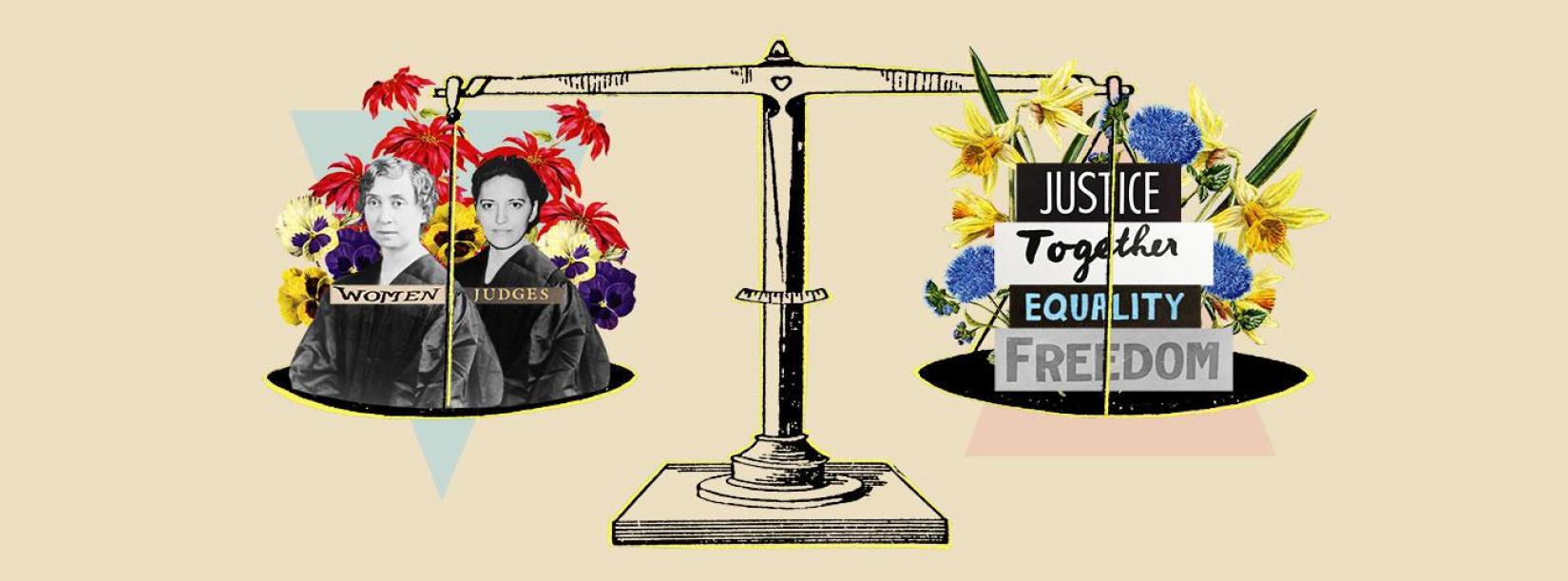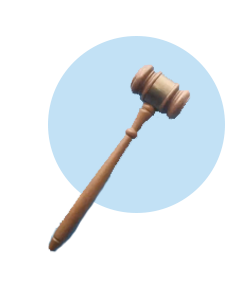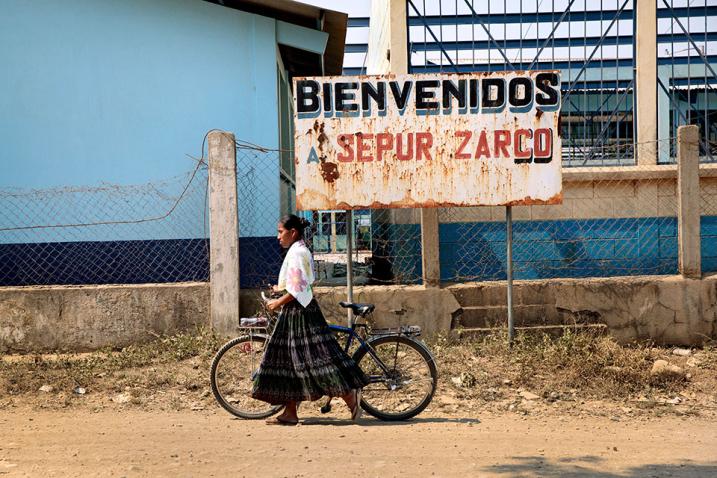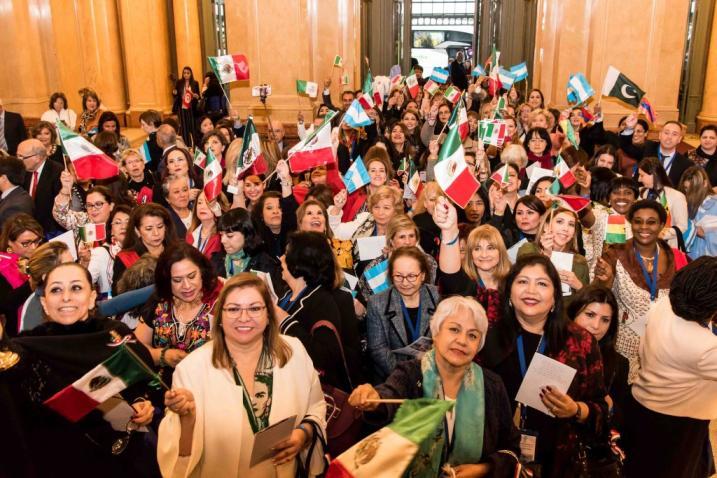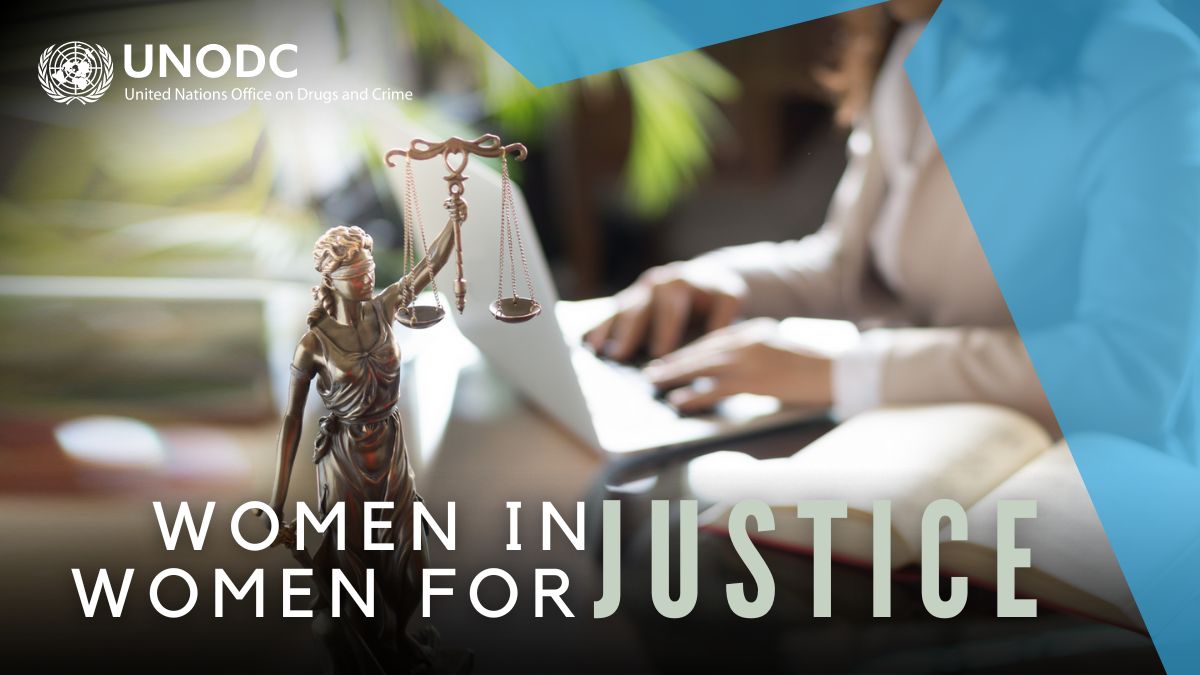Women judges and the achievement of gender equality
The representation of women in the judiciary is significant for many reasons. In addition to ensuring that the legal system is developed with all of society in mind, it also inspires the next generation of female judges and motivates them to achieve their goals.
Women in the criminal justice system can act as agents of change and contribute to greater accountability. Women judges bring different perspectives and experiences, strengthening judicial systems. Women in leadership roles help disrupt networks of collusion, striking a blow against corruption.
Women’s representation in law enforcement and judicial institutions has been linked to more effective, victim-centered responses to crime.
By investing in women’s advancement and women justice leaders, we can help ensure that justice is better served and that women and all members of our societies are met with fairness and equality before the law, for the benefit of all.
Only through the active participation of women, on equal terms with men, at all levels of decision-making, we’ll be able to achieve sustainable development, peace and democracy.
Background
While equality in the judiciary has been historically uneven, steps are being taken to remedy this as evidenced by the declaration by the United Nations General Assembly of 10 March as the International Day of Women Judges. The General Assembly resolution, drafted by the State of Qatar, is tangible proof of an positive shift.
Redressing gender inequalities is also at the core of UNODC's Strategy for Gender Equality and the Empowerment of Women, and is a goal shared by the Global Programme for the Implementation of the Doha Declaration, as it works to promote a culture of lawfulness around the world, providing education and training and supporting the full participation of women in every professional sphere.
Sepur Zarco: In pursuit of truth
“Peace can be achieved through justice,” said years ago Iris Yasmín Barrios Aguilar, a judge at the First Criminal Court of Guatemala who took the case of Sepur Zarco in her country. This case was historical as it obtained the condemnation of two former soldiers guilty of rape, forced labor and slavery of indigenous rural women. Learn more about this story, the perspective of Judge Barrios Aguilar and the testimony of Demecia Yat, one of the affected women who went to court.
Progress towards parity in the judiciary
In recent years the number of young women graduating from law schools has increased immensely. Nevertheless, the saturation of the judiciary is still low. Find out more about the representation of women in the judiciary, and hear the voices of many women who have paved the way and were able to overcome biases and rise to positions in the highest courts.
Why do we mark International Days?
International days and weeks are occasions to educate the public on issues of concern, to mobilize political will and resources to address global problems, and to celebrate and reinforce achievements of humanity. The existence of international days predates the establishment of the United Nations, but the UN has embraced them as a powerful advocacy tool. We also mark other UN observances.
Did you know?
- Forty per cent of judges were women in 2017, which is 35 per cent more than in 2008.
- In 1946, Eleanor Roosevelt famously penned an "open letter to the women of the world," urging their increased involvement in national and international affairs.
- In most European countries, there are more women than men professional judges or magistrates; however, women represent 41 per cent of the judges in national supreme courts and only 25 per cent of court presidents.
Campaign Materials
Download the social media material of the "Women in Justice, Women for Justice" campaign and spread the message. You can also edit a template and customize it.
Resources
- “Women in justice, women for justice” website (UNODC)
- Resolution on the International Day of Women Judges
- UNODC: Global Judicial Integrity Network
- UNODC's Strategy for Gender Equality and the Empowerment of Women
- UNODC: Gender-Related Judicial Integrity Issues
- UN Women
This part of the article has been published in United Nations' site through this link: https://www.un.org/en/observances/women-judges-day

